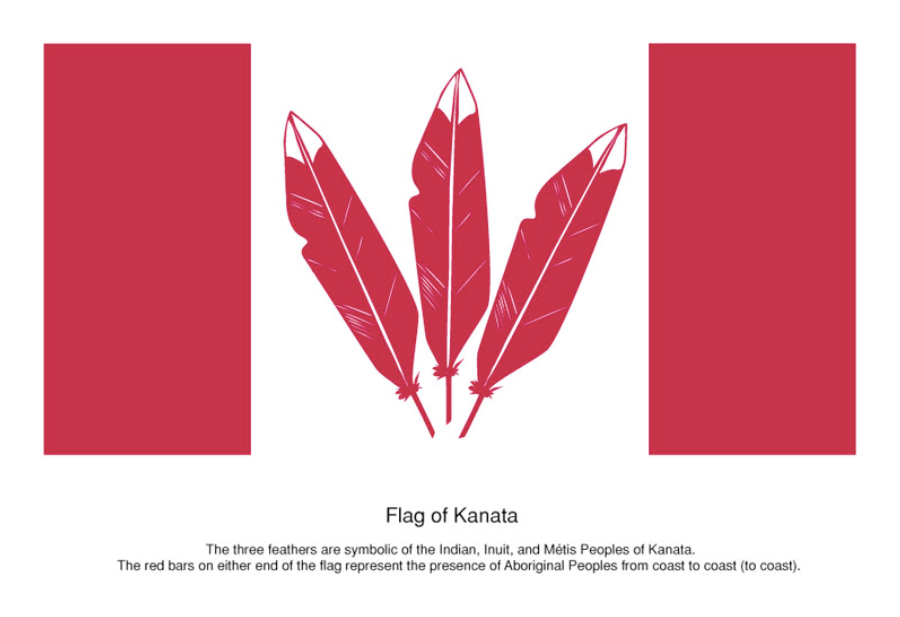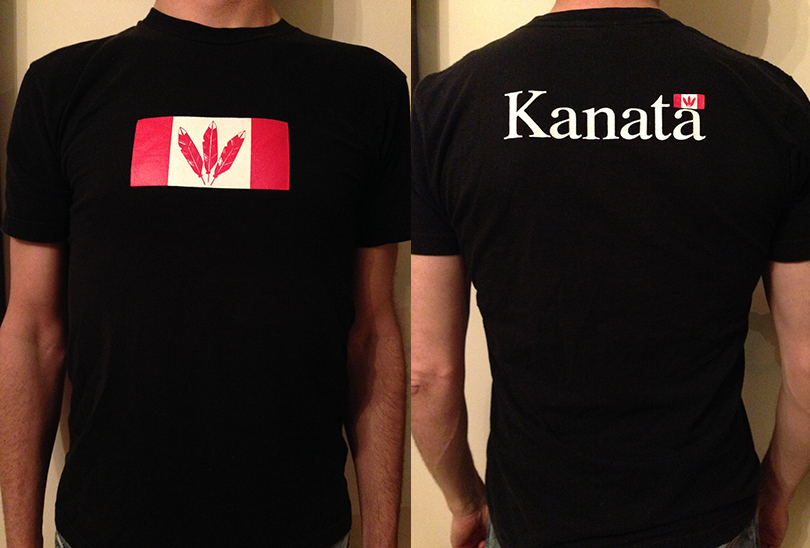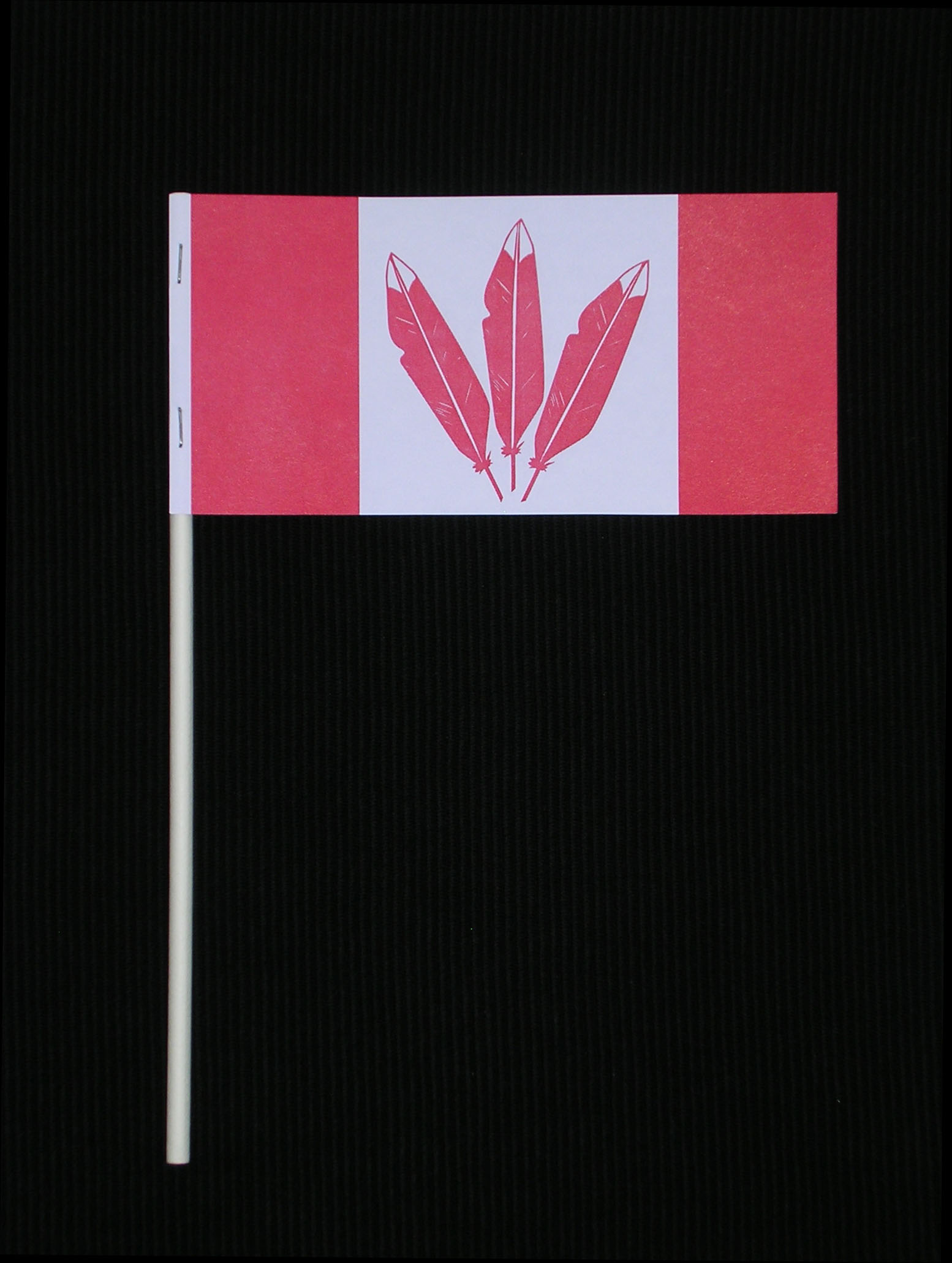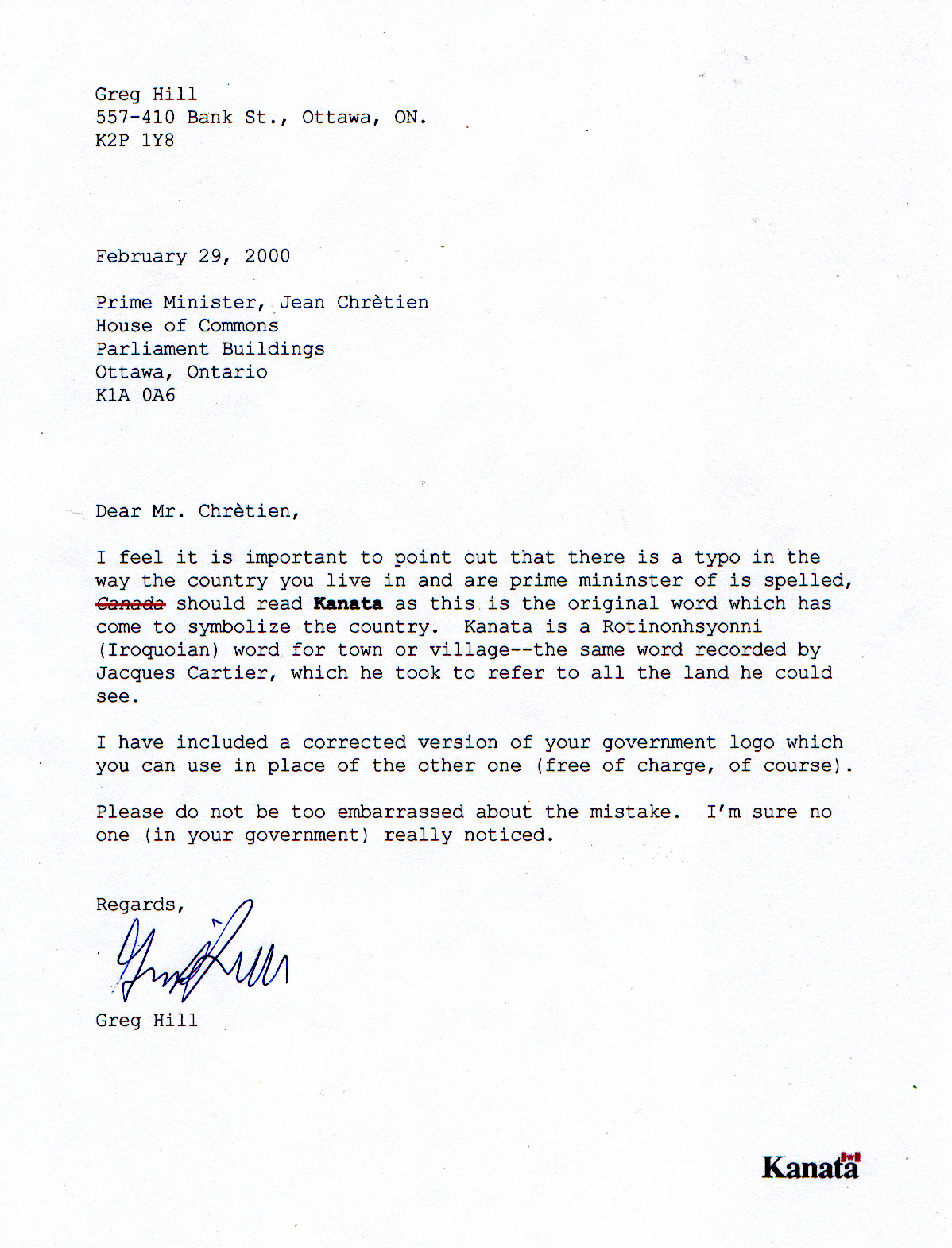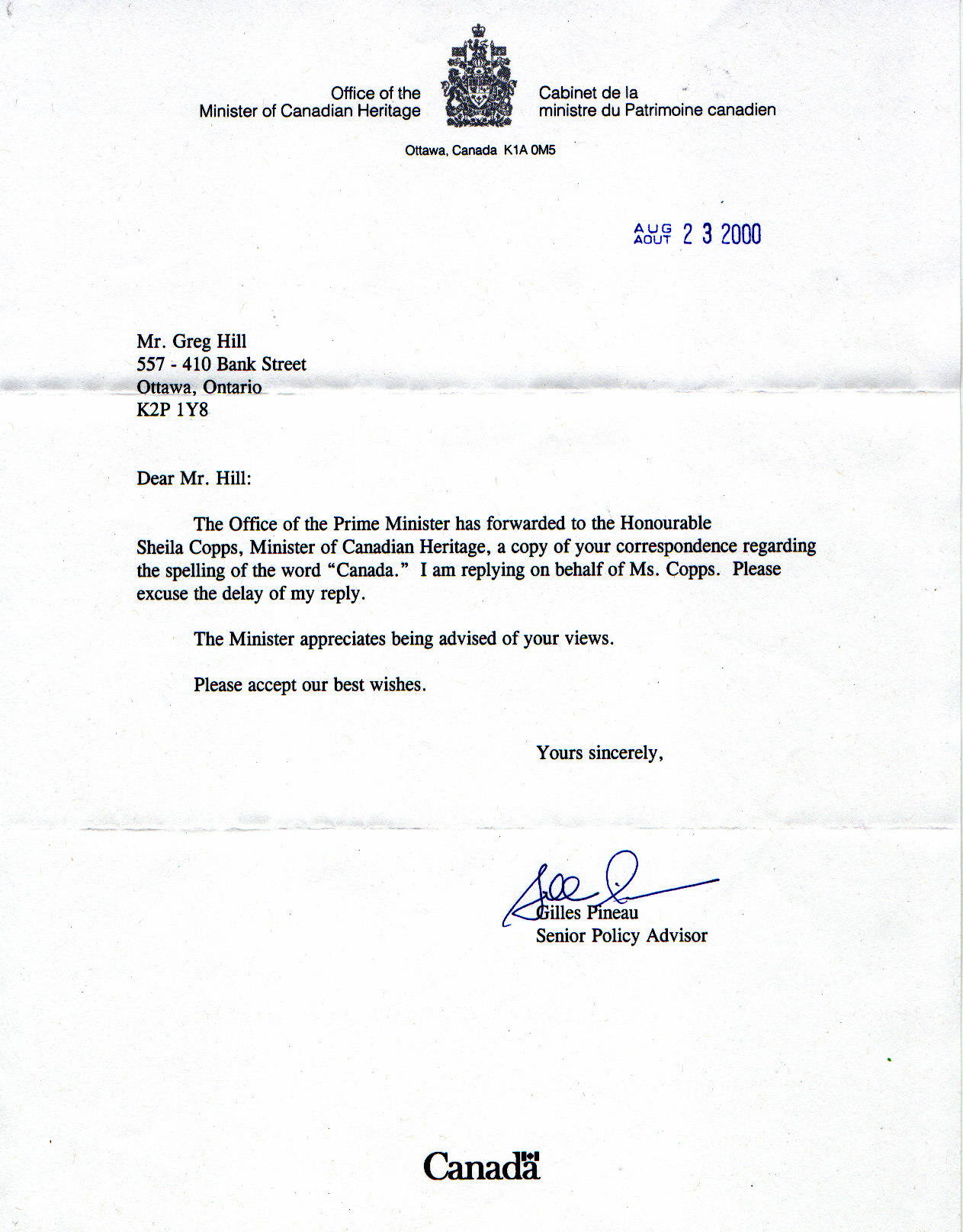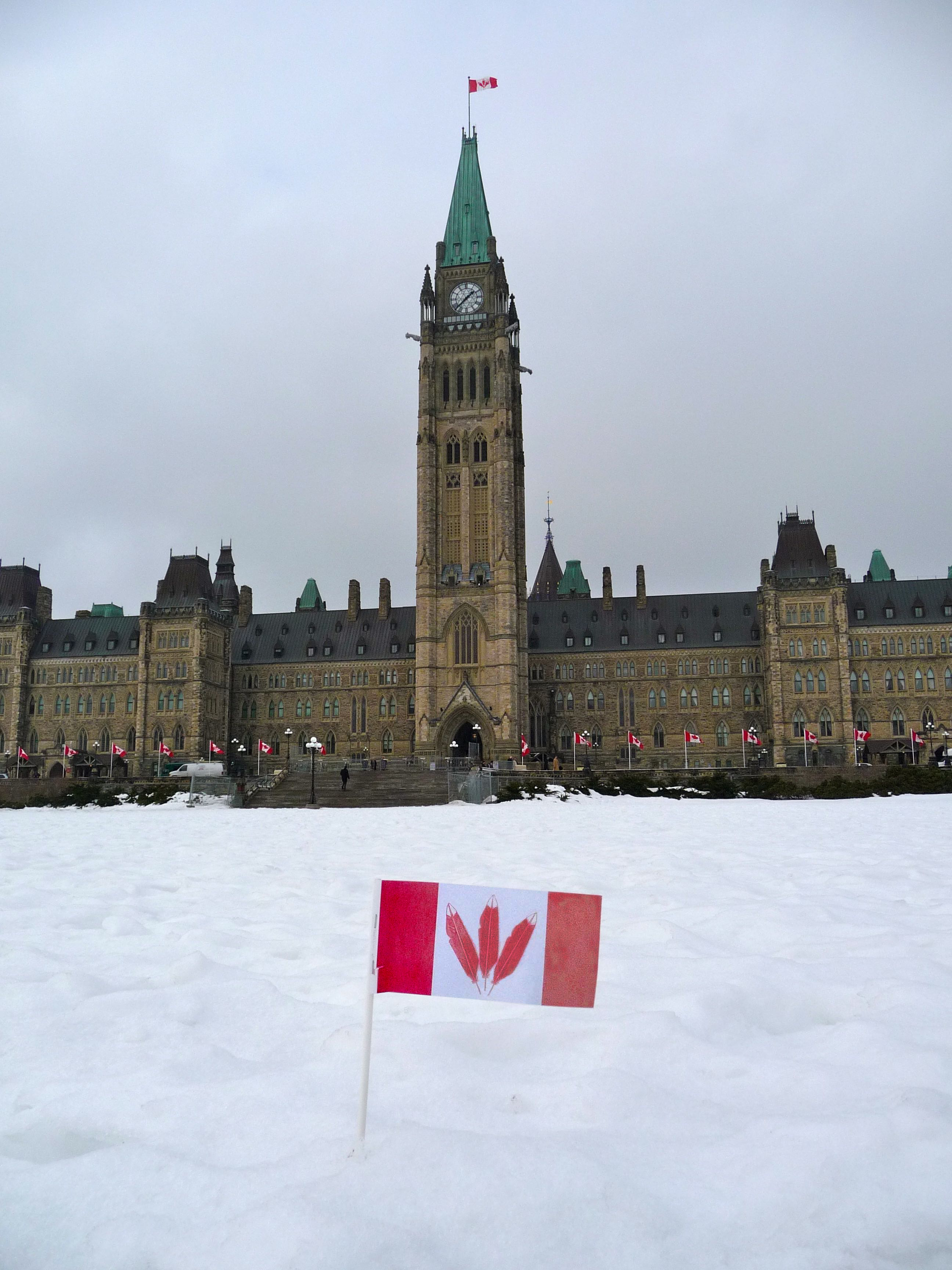The Kanata Project has been ongoing since before 2000 when I launched it as a Millennium Project. At that time it was framed as a project to create a new identity for “Canada”—one that recognizes and honours the Indigenous origins of this country. By redesigning the symbols of “Canada” and using the original Iroquoian word Kanata that Canada is derived from I draw attention to these issues and also challenge those things we assume are fixed such as national symbols. This project has included performances, videos, and exhibitions across Canada and as far away as Budapest, Hungary.

Kanata, not canada.
As a result of the widely broadcast Heritage canada minute, the knowledge of the original word–Kanata–the word transmutated into the name of the country now often referred to as canada, is well known. A Rotinonhsyonni (Haudenosaunee) word taken by Cartier in the year 1535 upon meeting Rotinonhsyonni people at Stadacona, Kanata became, ironically, the moniker for the colonial project that systematically sought to dismantle and dispossess the very people from whom this word was “borrowed.” Kanata means village, the place where we live, our home.
This word, expressed to the strangers entering their lived space, is both a descriptive and metaphorical statement. The Kanyen’kehaka were letting the explorers know their village was nearby. Kanata describes that place. At that moment, the Rotinonhsyonni and these new people had entered into a symbolic complex. The village and one’s position in relation to it is a metaphor for the stages of relationship and protocol between those inhabiting the village and those who may wish to enter it. To be outside the village– tsi karhakta, at the edge of the woods–is the first step, where one announces their presence and identifies themself. One can then move into the clearing outside the village, be invited inside the village, and then into the longhouse.
The symbolic meaning of this word is as important today and going into the future, perhaps the next 150 years, as it has been since 1535 with the arrival of the europeans, and since time immemorial in relations between indigenous peoples on turtle island.
Tekwanònhweraton tsi ken’en Kanata nitisewenonh / Welcome to Kanata / Bienvenue à Kanata.

